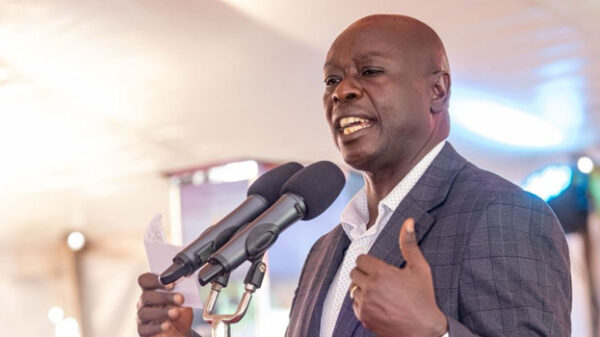NAIROBI, Kenya, Oct 7 – Human Rights Watch (HRW) has urged the National Treasury and Planning to extensively review its internal mechanisms to ensure transparency in implementing the cash transfer programme launched during the COVID-19 pandemic
Speaking during a stakeholders meeting on irregularities in the government’s COVID-19 cash transfer programme, Carine Keneza, Africa Advocacy Director at HRW said there was need to ensure timely transfer of cash funds given to the vulnerable people in the society.
“It is important that the office assess the effectiveness of internal controls and overall implementation including transparency and frequency of cash dispersals,” Keneza said.
She said lack of transparency makes it difficult to audit the process, including how beneficiaries are selected.
“It is important to undertake a timely and through audit of the entire process of the governments pandemic related cash transfer and publish the findings including the criteria of selecting the vulnerable households,” she added.
The government launched a cash transfer programme for vulnerable families in various parts of the country at the onset of the COVID-19 pandemic so as to cushion them against the tough economic times.
The programme targets 669,000 people.
According to the HRW representative, not all the people have received the funds with others missing out on some months
“The implementation of these initiatives is obviously undermined by the negligence and inadequate oversight by the authorities. Take the cash transfer Programme, for instance, it was vulnerable to fraud, errors like our research showed, corruption and embezzlement of funds,’’ she said.
The programme was launched by President Uhuru Kenyatta in March 2018 when he announced a range of measures to cushion the economic impact of the pandemic, including adding Sh10 billion ($100 million) to a social protection fund for the older people, orphans and those with underlying health conditions.
He also announced a cash transfer program for the most socio-economically vulnerable populations, including people with disabilities, pointing out that his administration was already paying out Sh250 million ($2.5 million) to the most vulnerable households each week.
Kenya has no system of social security to pay income to those who lose jobs and although government stated this as one of the objectives of its Covid-19 cash transfer program, the outlined criteria did not include job loss as one of the factors to be considered during the selection of beneficiaries.
Kenya does not guarantee social security for all and does not protect the right of everyone to an adequate standard of living, including adequate food and shelter at all times, even during an emergency.
Human Rights Watch’s analysis of available government data and information provided by government officials indicate that the Covid-19 cash transfer program provided support to less than five percent of the socio-economically vulnerable families in Nairobi, and an even smaller percentage across the nation, which means that the government failed to guarantee the right to an adequate standard of living for more than 95 percent of vulnerable households.
Kenya is a lower-middle income economy whose population has doubled over the past three decades from 23.72 million in 1990 to 47.5 million in 2020, which means that, even in the absence of emergency situations like the coronavirus pandemic, a growing number of Kenyans have been struggling to attain an adequate standard of living. Along with burgeoning population growth has come alarmingly widening economic disparities both between and within the nation’s eight regions and among the same population in a given region.
At least 36.1 percent of the population – 17.1 million Kenyans – live below the international poverty line, a measure of extreme poverty defined as earning less than $1.90 a day, according to the Kenya National Bureau of Statistics, while 66.2 percent live on less than $3.20 a day, and 86.5 percent on less than $5.50, according to the World Bank. As of 2015, half of Kenyans were living in multidimensional poverty, a measure that uses a weighted index of ten factors related to health, education, and living standards.
Poverty rates are especially high – above 70 percent – in the remote, arid and sparsely populated northeastern parts of Kenya. Some large cities also have high poverty rates; for example, 44 percent of Mombasa residents are classified as poor, compared to 42 percent of people in the capital of Nairobi. However, the abysmally low poverty line of $1.90 per day masks the huge numbers of people in higher-cost cities like Nairobi who struggle to afford basic necessities. Despite stubbornly high poverty rates, Kenya’s existing social protection system is not as robust and does not guarantee social security to everyone, which made it even more difficult to expand existing programs to identify and reach families in need of support during the pandemic.

























































